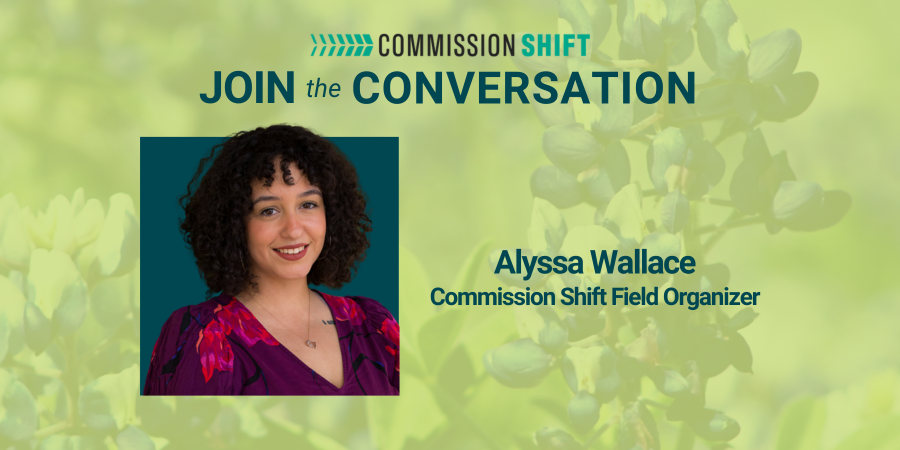
Meet Alyssa Wallace, a dynamic force in Texas community engagement and accountability. Hailing from Laredo and armed with a degree in Political Science from Texas A&M International University, Alyssa’s journey began in a Texas State Government course that ignited her passion for change. Inspired by her professor Dr. Maria A Reyes, who is now the Deputy Director of Commission Shift, Alyssa dove into local organizations and became the first issue advocacy fellow for Laredo at MOVE Texas, where she championed underrepresented youth participation in elections. Alyssa’s advocacy expanded to environmental protection, oil and gas, and climate change, leading her to her role at Commission Shift as a Field Organizer. Committed to addressing multigenerational issues, Alyssa believes in the transformative power of public engagement. In December, we dove into her experiences, insights, and aspirations for a conversation about how the work connects to her “why.”
I grew up with a mom who worked very hard to earn a living on her terms. While she was married, my step dad was an immigrant and it was often very difficult for him to find work so my mom had to be the one to find stable work. Seeing their distinct struggles definitely fuels my work. My family was very fortunate in that my step dad eventually found work in the oil and gas industry. I was personally at odds with this because I believe that we should be moving away from an extractive economy and protecting our Earth. But looking back now, my step dad’s job is what helped put food on the table and a roof over our heads. This is how many people in Texas live. For those reasons, it is important to me that we uplift the families that survive off of this industry but also make sure that the agency that regulates it does it safely and honestly.
I think the first step is to read about our work and ask yourself “how does this affect me?” It wasn’t apparent to me right away when I first learned about Commission Shift. It took me some time to understand how our air, land and water could be affected by the Railroad Commission being ineffective at enforcing rules for bad actors.
Secondly, share information about what we do and who we are.
Finally, consider donating to our organization to support the work we do. We have a host of ideas that focus on bringing impacted folks together and preparing them to be advocates for themselves. That work takes time and resources that are not readily available.
I try to focus as much as possible on bringing the youth into the fold. I love talking to kids about what I do, how I got here and what opportunities are out there for them. In schools, especially in South Texas, career fairs tend to focus on law enforcement, military, and oil and gas jobs. When we are in schools, talking to kids about the possibilities outside of those careers, we create leaders of the future. We empower children who have seen struggle and know they want better.
Bridging the gap between our elders and our youth is also important in this work.
Contributing to Commission Shift allows us to have more learning or training opportunities. It also allows us to plan events like convenings and community meetings where we can talk to the folks who need the most support. In order to reform the RRC, we need to build power in our communities and in order to do that, we have to meet them where they’re at. Literally! Traveling to places out in West Texas to meet with ranchers whose livelihoods are at stake because of unplugged wells takes a lot but it’s work that is necessary to understand the scope of the issues.
Make a Gift Today